Filter by
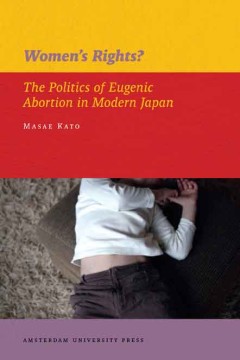
Women's Rights? : The Politics of Eugenic Abortion in Modern Japan
This volume explores the concept of Japanese reproductive rights and liberties in light of recent developments in disability studies. Masae Kato asks important questions about what constitutes personhood and how, in the twenty-first century, we come to understand eugenic abortion and other bioethical arguments. Tracing the origin and influence of the concept of a "right," the author places the …
- Edition
- -
- ISBN/ISSN
- 9789053567937
- Collation
- 342 halaman
- Series Title
- IIAS Publications Series
- Call Number
- 300 KAT w
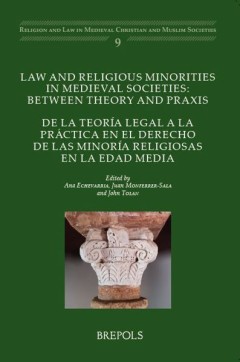
Law and Religious Minorities in Medieval Societies
This volume shows through the use of legal sources that law was used to try to erect boundaries between communities in order to regulate or restrict interaction between the faithful and the non-faithful; and at the same time shows how these boundaries were repeatedly transgressed and negotiated. Muslim law developed a clear legal cadre for dhimmīs, inferior but protected non-Muslim communities…
- Edition
- -
- ISBN/ISSN
- 9782503566948
- Collation
- -
- Series Title
- -
- Call Number
- -
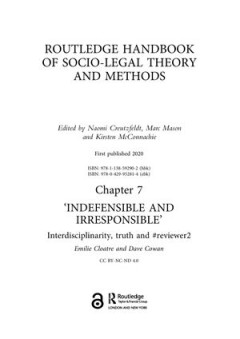
Chapter 7 ‘Indefensible and Irresponsible'
Drawing on a range of approaches from the social sciences and humanities, this handbook explores theoretical and empirical perspectives that address the articulation of law in society, and the social character of the rule of law. The vast field of socio-legal studies provides multiple lenses through which law can be considered. Rather than seeking to define the field of socio-legal studies, thi…
- Edition
- -
- ISBN/ISSN
- Taylor & Francis
- Collation
- -
- Series Title
- -
- Call Number
- -
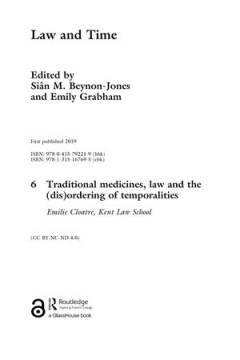
6 Traditional medicines, law and the (dis)ordering of temporalities
In this chapter, I explore the regulation of alternative and traditional medicine, in order to reflect on how particular temporalities shape, and are shaped by, the interface between law and medicine. This chapter makes two key points: first, it argues that both biomedicine and law have relied on a particular sense of ‘modernity’ as a linear temporal process; in turn, this has been key in d…
- Edition
- -
- ISBN/ISSN
- 9780415792219
- Collation
- -
- Series Title
- -
- Call Number
- -
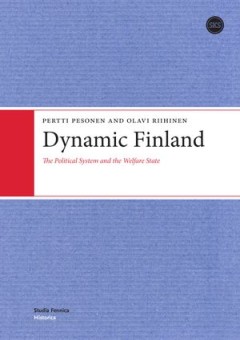
Dynamic Finland
Finland celebrated its 85th year of independence in 2002. It is one of the thirteen countries of the world that have preserved their democracy uninterrupted since the First World War. Despite its modest origins and difficult wartime experiences, this dynamic country is now a world leader in many spheres. In 2001 it was named the world's most technologically advanced and also the least corrupt c…
- Edition
- -
- ISBN/ISSN
- 9789522228222
- Collation
- -
- Series Title
- -
- Call Number
- -
 Computer Science, Information & General Works
Computer Science, Information & General Works  Philosophy & Psychology
Philosophy & Psychology  Religion
Religion  Social Sciences
Social Sciences  Language
Language  Pure Science
Pure Science  Applied Sciences
Applied Sciences  Art & Recreation
Art & Recreation  Literature
Literature  History & Geography
History & Geography